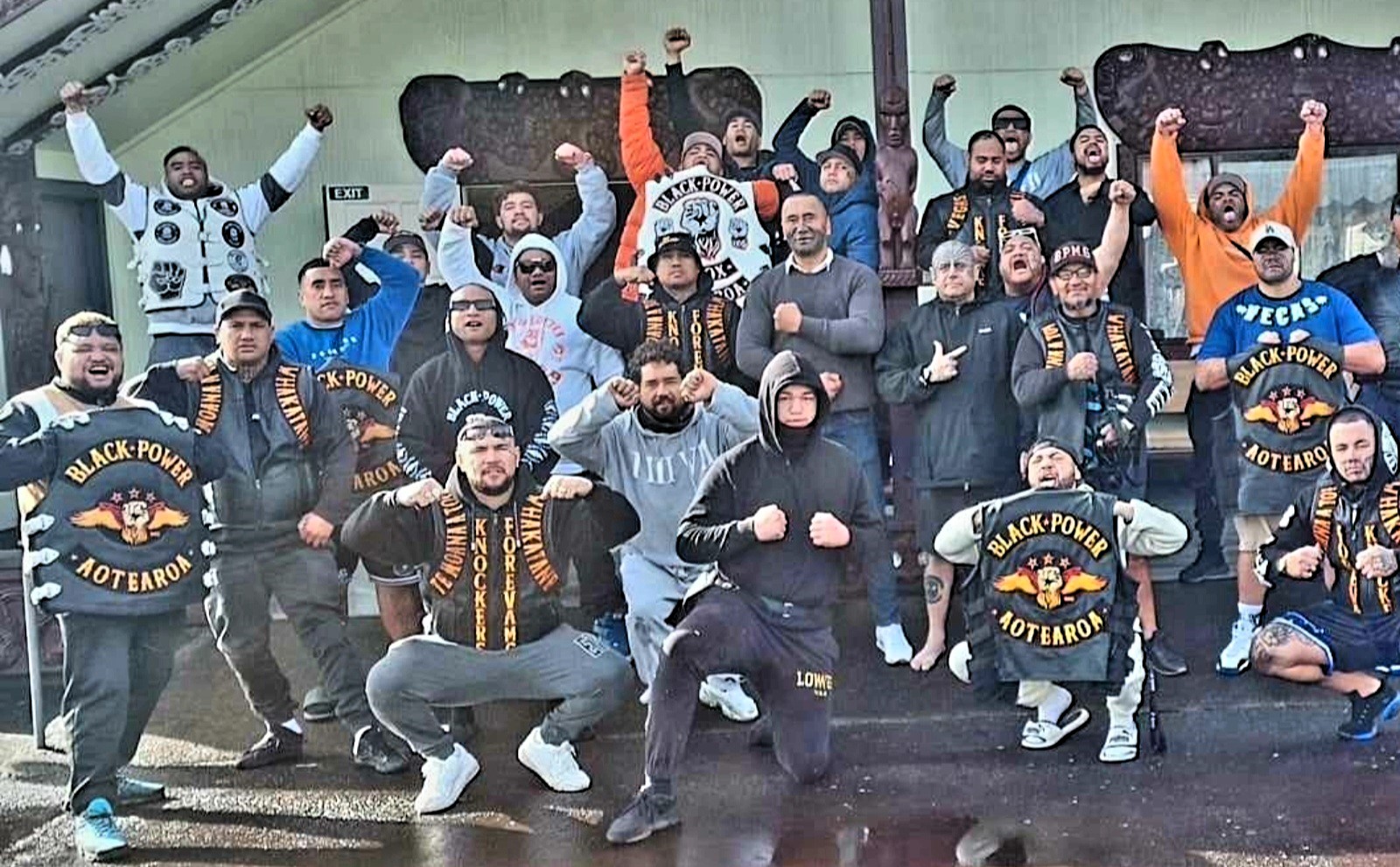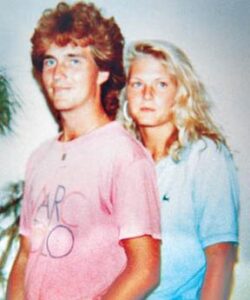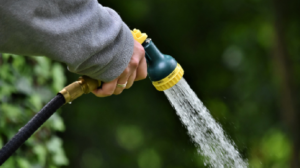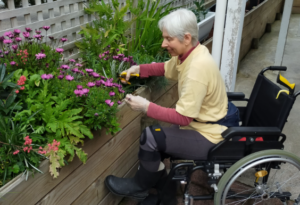Gang members from Black Power and the Mongrel Mob came together for a healing hui on July 19-21, the beginning of a journey to address trauma and fix a cycle of “broken men”.
Ngāti Maru marae was the venue as 46 members of Black Power arrived for the hui on the Friday night. Senior members of the gang including the head of Black Power New Zealand were among their ranks. Hui facilitator Lucky Te Koha, from Mana Mentoring, said their presence was a testament to their commitment to improving the men they led.
“[They] knew that they needed to reduce stuff in their lives. They were leading the way.”
The hui opened with a pōwhiri, and the guest speaker was Mongrel Mob leader Ariki Paito, who attended with three of his senior men. Lucky said it was rare to see Black Power and the Mongrel Mob coming to the table together.
Lucky has already been working with Ariki for five years, and in that time he said he has seen a massive change.
“He’s got 96 per cent of his guys are working now, [his rule is] that you’re not to take methamphetamine or deal in drugs,” Lucky said.
“His role as head man is to lift up the guys… out of their brokenness. He said, ‘when broken men are in the family, our families are broken. When the men heal, the family heals, when the family heals, the community heals.’ So he spoke on that and the reasons why he does it.”

Following the pōwhiri, the Black Power men powered through two days of intensive workshops, the first of four modules aimed at addressing the underlying trauma that Lucky said was the root cause of addictions and aggressiveness within the gangs.
They will face a further three workshop weekends – the next is due to take place on September 27-29 – after which Lucky said the real challenge would begin.
“It’s the maintaining… That’s where people will fail,” Lucky said.
“Because they don’t have the right support systems around them. So that’s my next thing is putting the right things around them. It’s a big picture.”
Lucky, himself a former member of a skinhead gang and later an organised crime syndicate, said relatable life experience was key when helping people through their trauma, and particularly those who had faced hardships within the gang systems.
“They know I’ve been there. I’ve walked out of it nearly seven years ago. If you want to learn how to change your life, you go to somebody who’s done it.”
And Lucky has done it. Sexually abused at a young age, addicted to heroin by 16, and using and dealing methamphetamine for over 30 years, Lucky was living the life of a stereotypical gangster.
“I was heavily traumatised growing up. I say to people, Once Were Warriors was nothing compared to what we grew up in,” he said.
“I was extremely violent and I was extremely aggressive and angry. And so everything I did – alcohol, the drugs, partying, women, all that kind of stuff – was self-medicating. I had everything you could think of, and I was still unhappy.”
It took a long, hard look in the mirror to realise that mandatory rehab, prison and court-ordered programs would do nothing for a man who was trying to hide from the pain.
“I’ve done every type of group you can think of, you know, anger management… I didn’t want to go to any of them because I knew it wasn’t going to change nothing. Because I couldn’t get past the anger in me,” Lucky said.
“It dawned on me, everything I do is to pleasure myself. And why am I doing that? Because I’m hurting inside. And then I realised it was trauma. Just like that.”
Having come out the other side, Lucky is now a mentor with Mana Mentoring, a charitable trust helping people overcome trauma and addictions.
He’s worked with people of all walks of life, he said – teachers, churchgoers, youth – but the gang work is his passion.
“I don’t get paid to do this gang work, I go to the gangs for free. All of the gangs,” he said.
“I’ve worked for about seven different chapters, throughout the country, I’ve got another seven now wanting me to go to them next year.”
The modules he now works on with the gangs are a kind of talk therapy. It succeeds where rehab fails, Lucky said, because he focuses on addressing the trauma beneath the addictions.
“How do you get rid of trauma? Well, it’s simple. You just talk about it. And you’ve got to talk about it with people that have been through it,” Lucky said.
“Everybody has to speak. There’s no sitting there.”
July’s hui was a good beginning for the members of Black Power, Lucky said.
“These guys got a lot of healing over the weekend. By the time they left on Sunday, they all said, ‘I feel massive, I feel so different’, because they’ve unburdened themselves, you know. In a safe space, with friends around them,” Lucky said.
“See, when you’ve got men that really want to change, they really invest.”





